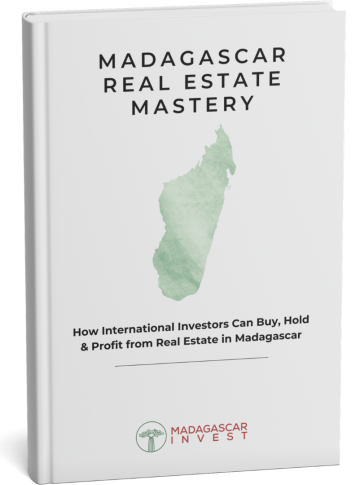While Madagascar provides relatively open conditions for investment, the choice of structure is essential for navigating both practical and legal considerations.
If you want to set up a company in Madagascar, click here. Otherwise, read on to learn more about the various different company entities that exist in Madagascar.
There are several critical factors to consider. Among those are the desire to form partnerships, the protection of personal assets, and the presence of regulations that may require the adoption of specific legal forms.
It is equally important to ensure that the chosen structure aligns with long-term objectives, tax obligations, and local governance standards.
Most common legal structures in Madagascar
The table below showcases a summary of the essential features of most common structures, focusing on liability and partnership aspects.
| Legal structure | Desire to form partnerships | Protection of personal assets | Description |
| Entreprise individuelle (EI) | Not applicable – single owner | No separation between personal and business assets | Business and personal assets are merged; the individual is fully liable for all business debts. |
| Limited Liability Company (SARL – Société à Responsabilité Limitée) | Suitable for small to medium-sized partnerships | High – liability limited to contributions | A separate legal entity managed by one or more partners. Can be a single-person SARL. Flexible and popular structure for SMEs. |
| Public Limited Company (SA – Société Anonyme) | Suitable for larger ventures with shareholders | High – liability limited to shares | Regulated structure with a minimum capital requirement. Managed by a general administrator or board of directors. Can be unipersonal. |
| General Partnership (SNC – Société en Nom Collectif) | High – partners actively collaborate | Low – partners are personally liable for business debts | Partners share unlimited liability. Ideal for ventures where trust among partners is strong. |
| Economic Interest Group (GIE – Groupement d’Intérêt Économique) | Collaboration among multiple businesses | Varies – members remain responsible for obligations | A formal alliance for non-commercial activities, often used by businesses sharing resources. |
| Foreign Company (SDET – Société de Droit Etranger) | Depends on the parent company’s goals | Varies – liability handled by the foreign entity | A branch, liaison office, or agency of a foreign company operating in Madagascar. |
| Cooperative (Société Coopérative) | High – fosters collaboration among members | Varies – depends on the cooperative’s statutes | Focuses on collective operations, often in agriculture or crafts, with shared profits and responsibilities. |
| Non-Governmental Organization (NGO) | Can involve collaboration between founders or stakeholders | High – founders are not personally liable | Aimed at non-profit initiatives, subject to regulations governing activities and funding. |
Source: author, adapted from EDBM
It’s important to note that if a foreign company wants to set up a business as an independent legal entity, a subsidiary is required (in lieu of a branch/liaison office/on site representative office).
The subsidiary can, therefore, be registered as a Limited liability company (SARL) or a Public limited company (SA).
Specific case of a duty-free enterprise (zone franche)
This structure is an incentive system to attract foreign investors, fully oriented to export activities. Those activities are of three categories:
- Industrial processing companies;
- Service providers companies; and
- Intensive production companies.
“The incentive system is centered around tax benefits, offering accredited companies reduced obligations, with only income tax and tax on interest applicable to them.
In addition, accredited service providers companies are exempt from Income Tax for 2 years 5 years for
intensive production companies (“entreprises de production intensive de base” or “EPIB”) and for industrial processing companies committed to activities falling under the agribusiness sector, and at least 15 years for operating promotion companies that operate land arrangements.”
All in all, investing in the country is governed by a flexible framework—foreign investors are not subject to any specific conditions regarding nationality, nor are they required to obtain prior authorization or approval, except in specific regulated industries.
This flexibility allows entrepreneurs to select a company structure that best suits their business model, partnerships, and risk management strategy. Therefore, each structure offers unique benefits, depending on the business goals, size, and risk management needs.
If you’re ready to get started, Madagascar Invest can help you set up your company in Madagascar in an easy and affordable manner.




